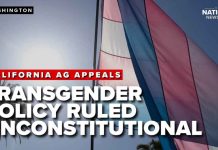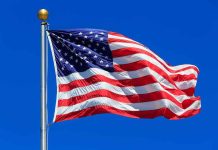
A Michigan decision to approve an anti-Trump license plate raises questions about civility and freedom of expression in America.
Key Points
- The Michigan Secretary of State approved a license plate reading “86TRMP,” sparking controversy.
- Conservatives criticize this decision as a double standard in political expression.
- The approval comes amid calls for civility in political discourse.
Michigan’s Controversial License Plate Decision
The Michigan Secretary of State’s approval of a license plate with the inscription “86TRMP” has ignited a heated debate. This decision is perceived by many conservatives as a blatant double standard—allowing anti-Trump sentiment to be publicly displayed while often censoring conservative voices. The phrase “86” is colloquially used to mean getting rid of something, leading many to interpret the plate as an endorsement of anti-Trump sentiment.
This decision is seen as part of a broader pattern where conservative voices feel marginalized and censored while liberal narratives are given a platform. Many argue that this undermines the call for civility in political discourse, revealing a one-sided approach to free expression.
Dems Preach 'Civility' While Approving Abhorrent Anti-Trump License Plate https://t.co/2oDFI6cV11
— Rosehead (@Rosehea92496012) September 22, 2025
Civility in Political Discourse
The approval of the “86TRMP” license plate arrives at a time when political leaders frequently call for civility in discourse. However, such decisions often appear to contradict these calls, creating a perception of hypocrisy. The inconsistency in handling political expression is not lost on the American public, particularly those who feel that their conservative values are under attack.
While the freedom of expression is a cornerstone of American democracy, the selective application of this right is what frustrates many. When one side perceives that its views are being suppressed while opposing views are freely expressed, it deepens the divide and erodes trust in institutions.
Implications for Free Speech
The controversy surrounding the license plate approval has significant implications for the broader discourse on free speech. It raises questions about the role of governmental authorities in regulating expression and the potential biases that may influence such decisions. For conservatives, this is not just about a license plate but a symbol of a larger battle over the freedom to express their beliefs without fear of censorship or marginalization.
As these debates continue, the need for a balanced approach to free speech that truly respects all viewpoints remains critical. The challenge lies in ensuring that calls for civility are not just lip service but are genuinely reflected in actions and policies.


